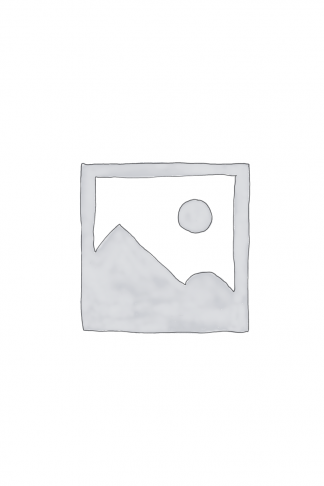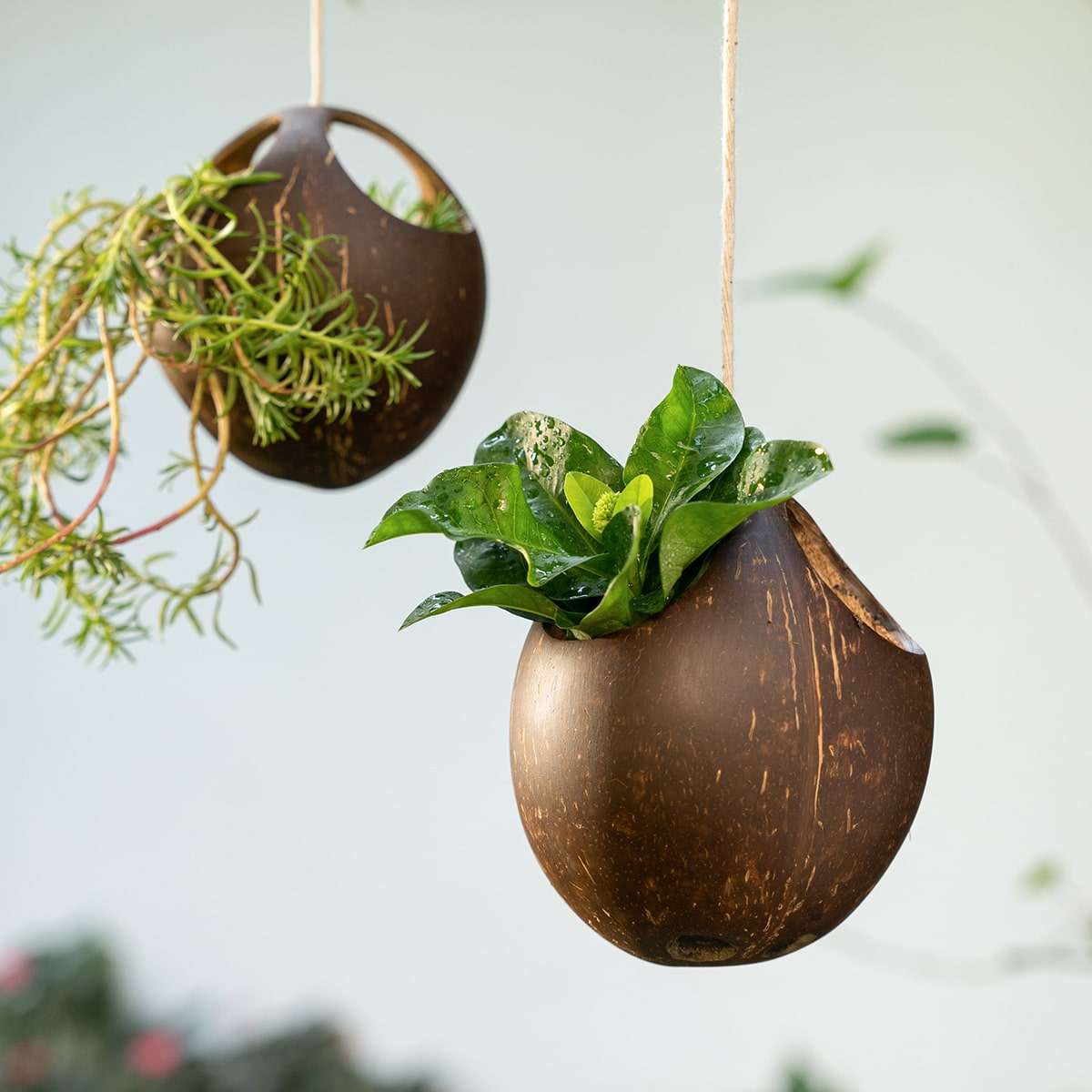Showing 49–60 of 124 results
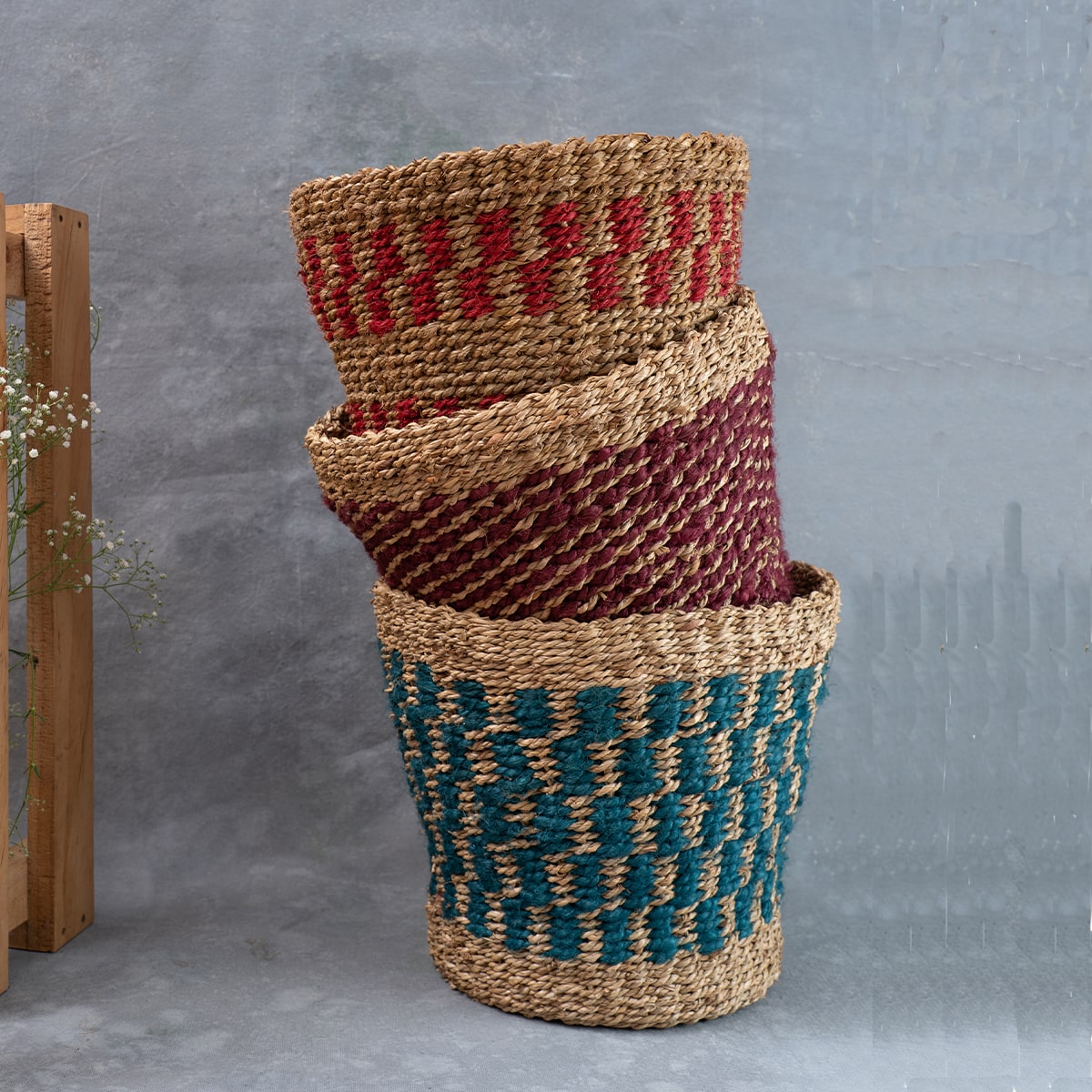
Kooda Planter/Bin basket
$850.00
Handcrafted with Coir and Cora grass strands, these are 100% natural fibre product. Product may have strands not behaving well and protruding out. These are characters of the handcrafted natural fibre products. Note 1: Washable in tap water at less than 40 c. Do not use strong cleaning agents Note 2: Colors may vary slightly based on the display settings used
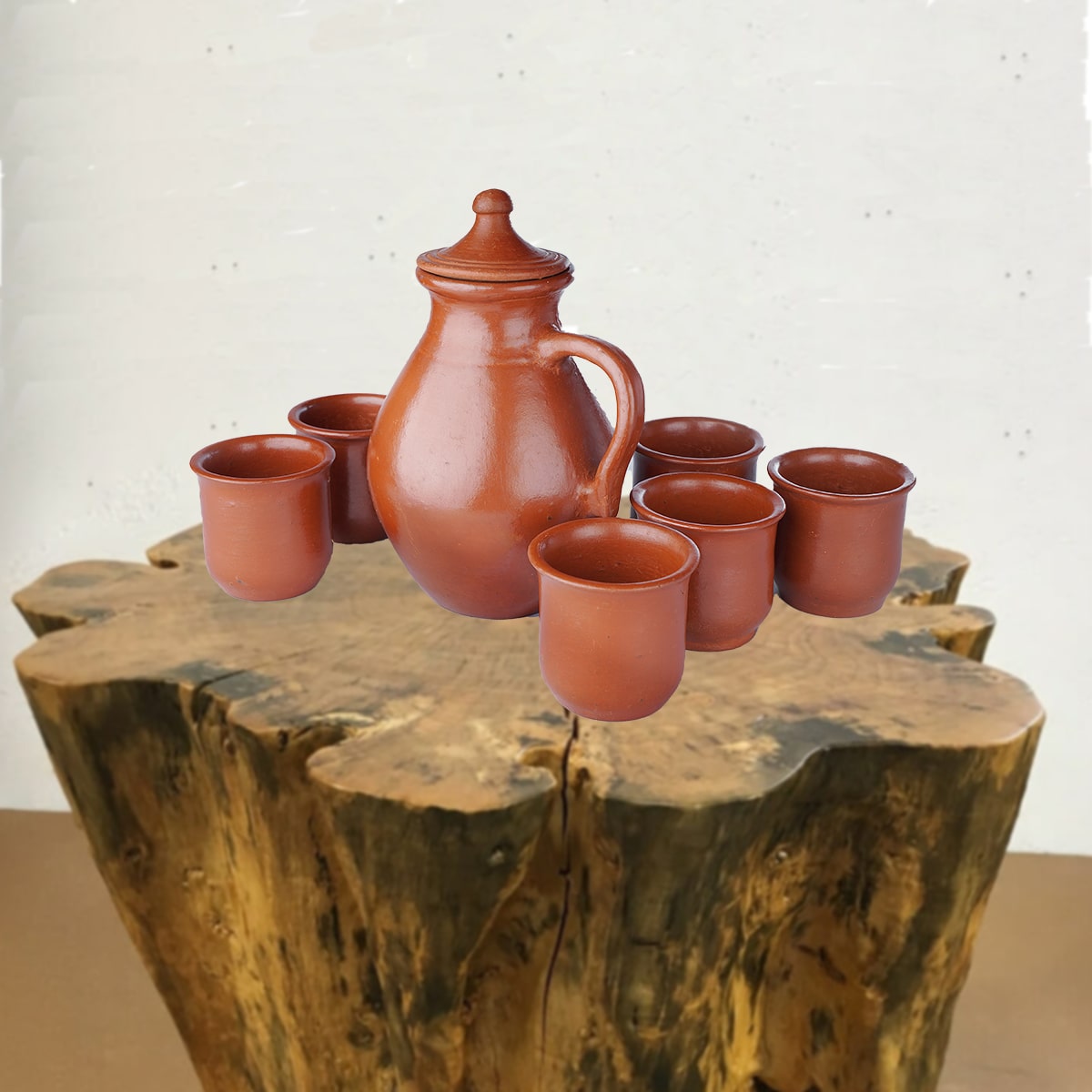
Kooja - Coppa - Set of Jug + Six Cups
$50.00
$50.00
In Kerala, during good old days, one of the first activity in the morning during summer is to fill a "kooja" (an earthen pot) with water. The kooja perspires and cools the water and it quenches the thirst of everyone in the household with cool water. In olden days, people used to drink water from Kooja using a small bowl called "coppa" or "pinjanam". Here is an attempt to recreate the way of serving some naturally cooled water. It is a "Kooja and coppa" set
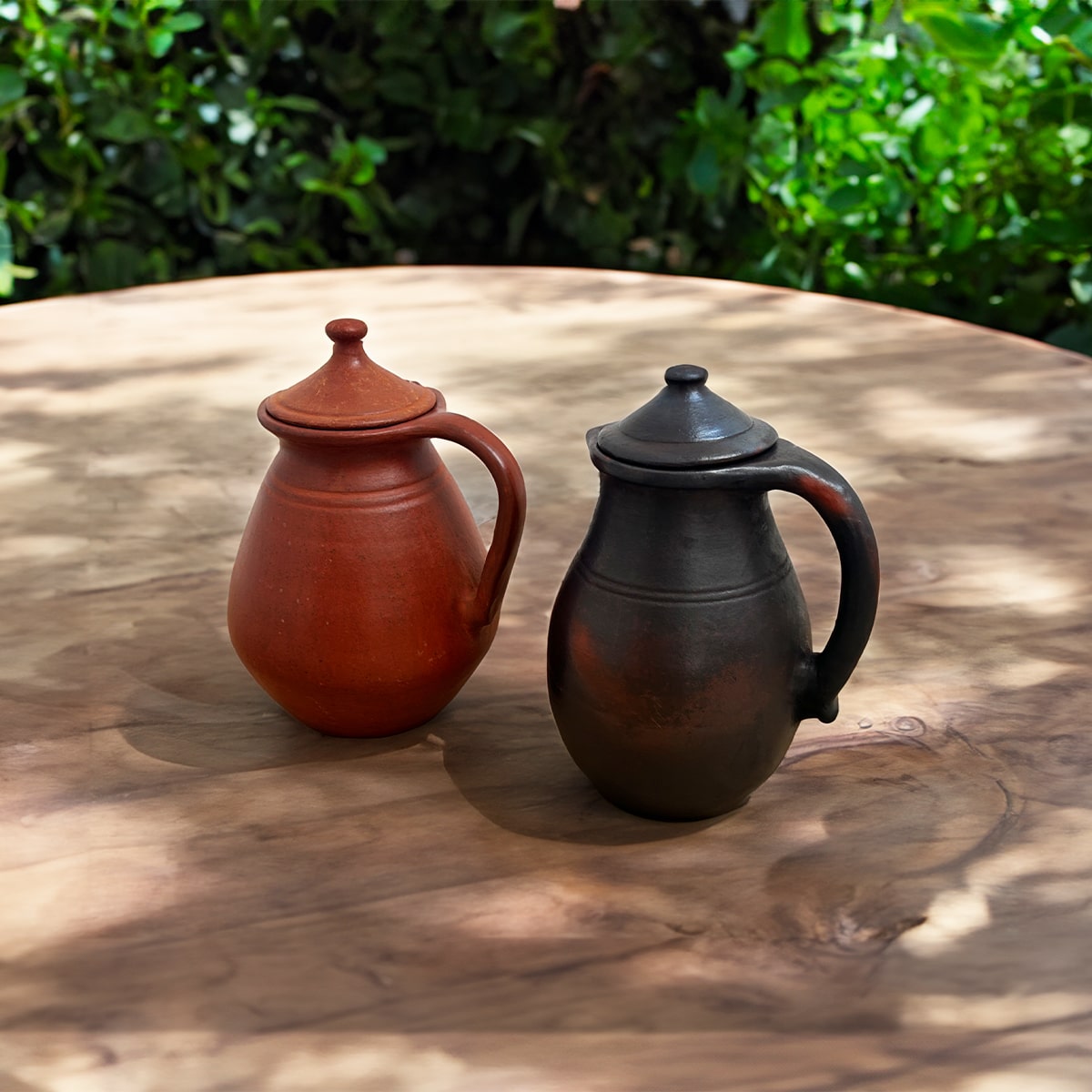
Kooja - Water Jug, 2.5 L Capacity, Natural Clay Jug
$20.00
Keep your drinking water naturally cooled. Drink that earthy flavour water for a refreshing feeling!
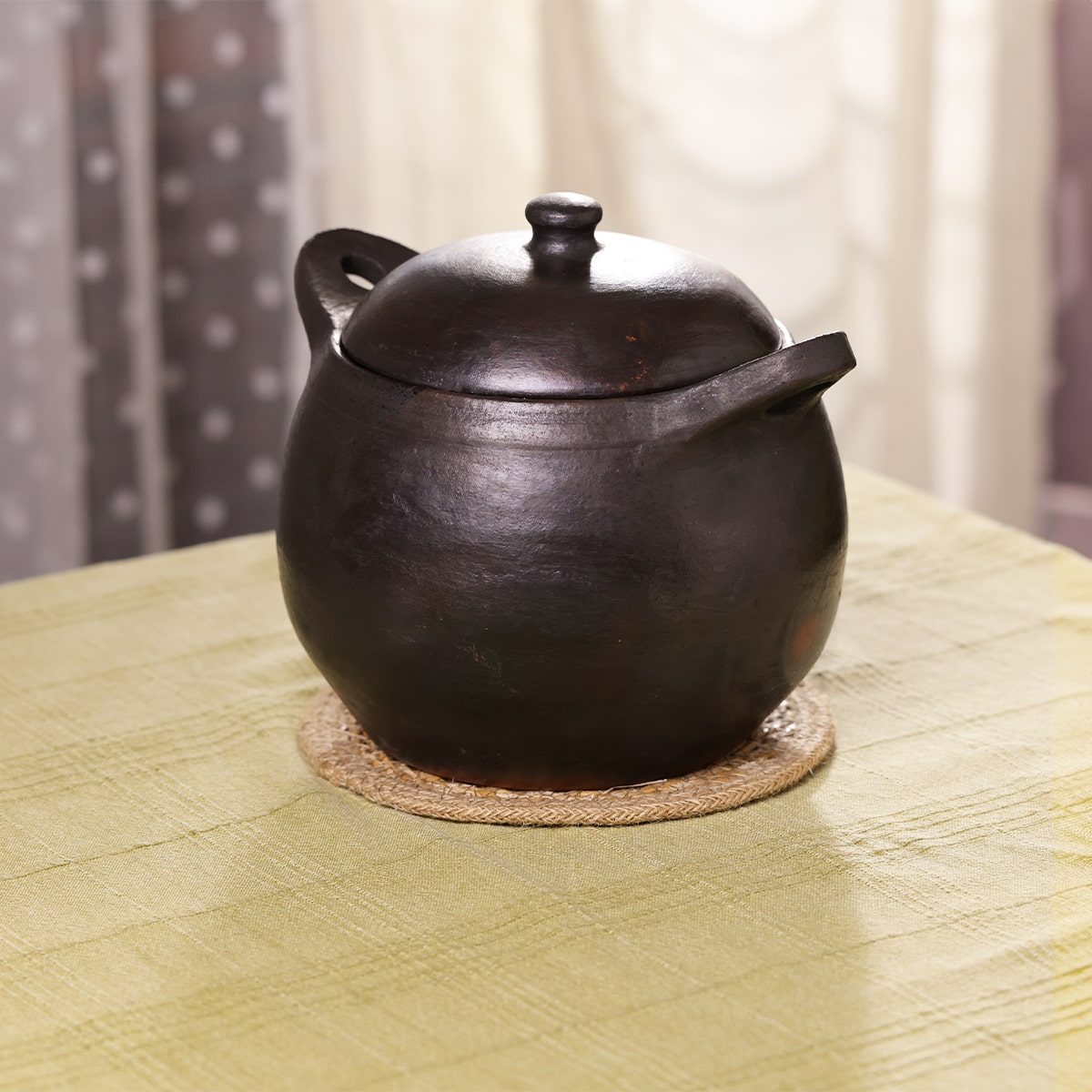
Kudukka Terracotta Pot with Lid (2 Litres)
$22.00
$25.00
Versatile flameware pots that will steam rice, simmer soup, slow cook dishes, or make your favorite curry. Clayware adds depth to every recipe. Practical to work with due to the uniquely designed handles and fitting lid. The black tone of the product is achieved through processing in the kiln. It is a blackening process done on the natural terracotta coloured product.
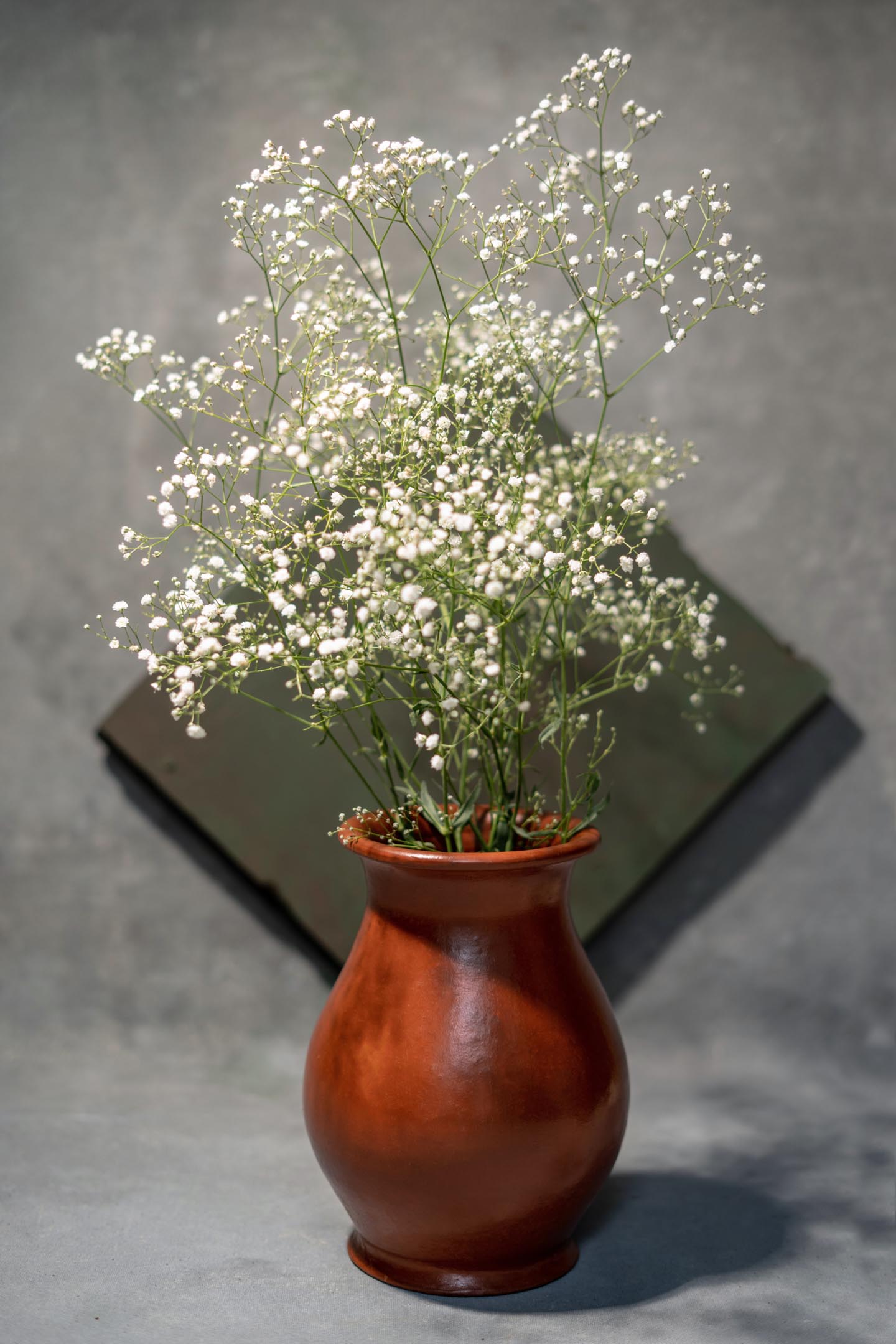
Kumbham Vase
$20.00
$20.00
A "Kumbham" is a type of pottery with a wide bottom and narrow neck. Pottery work is traditionally done by "Kumbharan" communities. They live along river banks or paddy fields where they could get regular supply of good quality clay. The skilful hands of Aruvacode potters crafted this "Kumbham". Produced from pure clay, this vase is not just going to enhance your home decor, but also ensures no harm is made to nature. Yes, this Kumbham vase is eco friendly and sustainable.
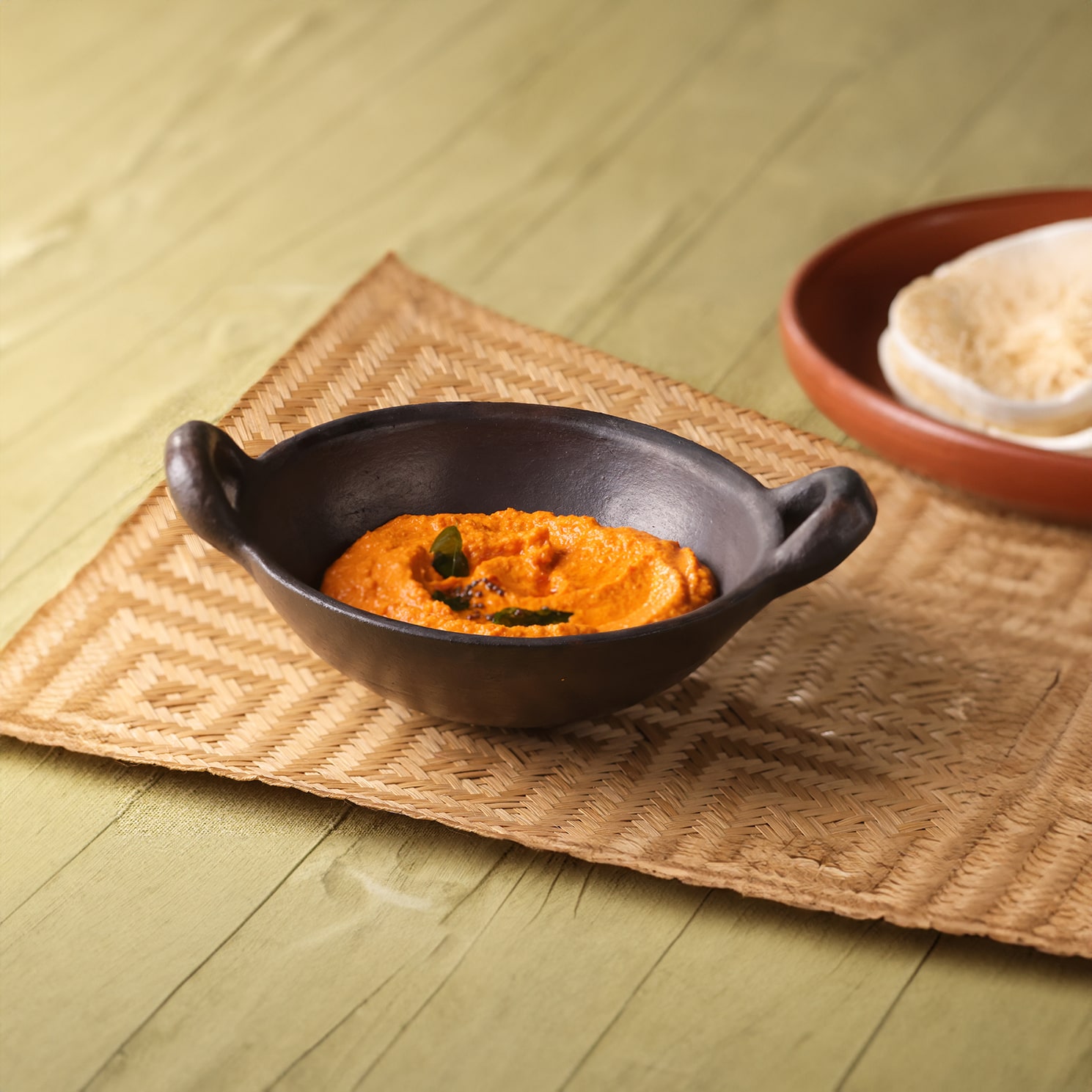
Kunhichatti - Seasoning and Serving Pot (400 ml)
$11.00
$14.00
A handy pot to prepare the seasoning for your curries, chutneys,... and take it to your dining table. Clay pots add that unique character to your seasoning
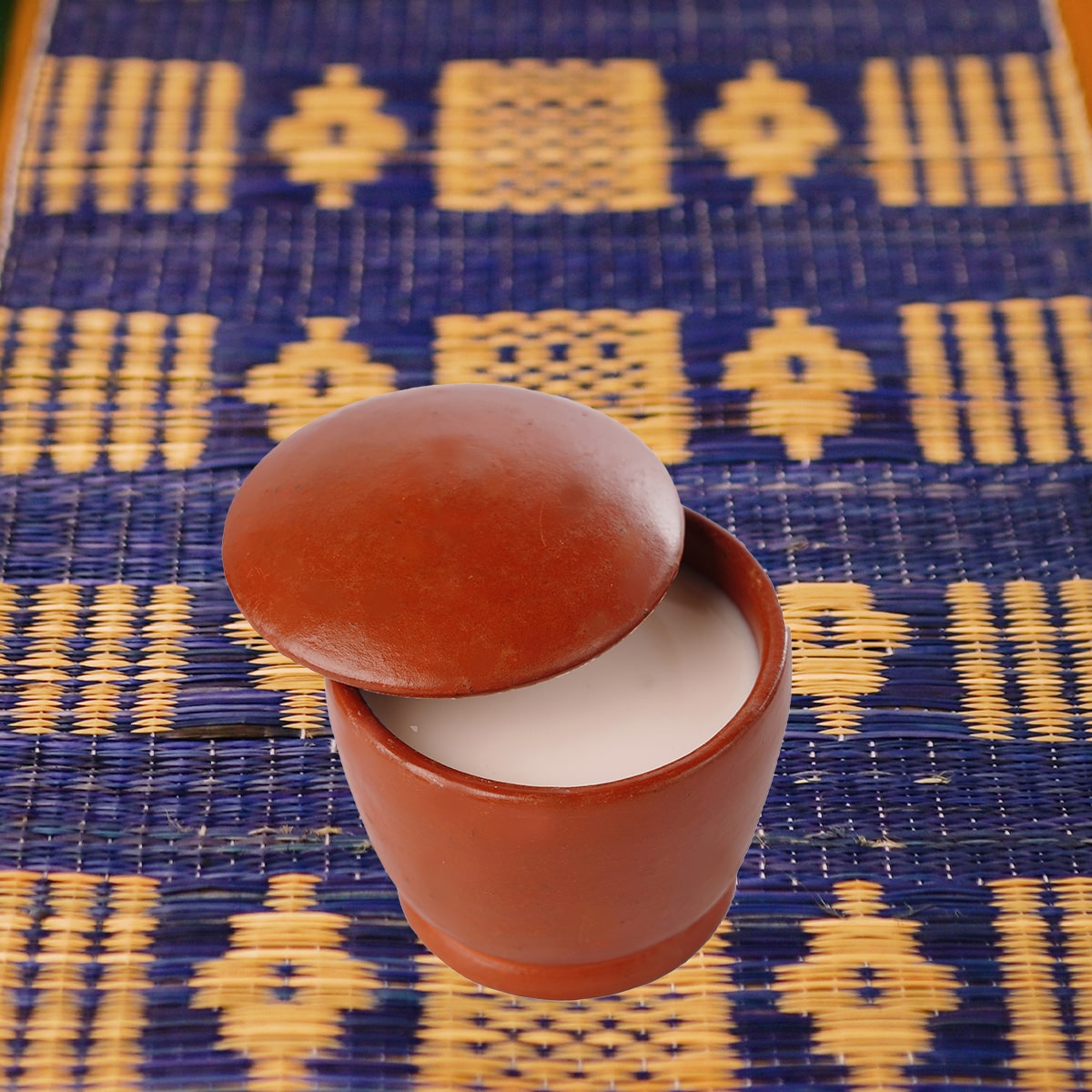
Kunhikkalam - Personal Curd Setter
$12.00
$12.00
Our Mothers teach us family recipes. But we often fail to recreate that magic in our food. For sure, one reason is the way we cook, our affinity for short cuts. At Graamyam, we are making a small effort to help you to bring back your memories of food, as prepared by your mother. Here is a small curd setter, to make home curd with a whole new accent, with the earthy flavour of the clay pot. This is just enough to make curd for a person's consumption. Curd set in a steel container can never match the flavour and richness of curd set in a terracotta vessel. Clay being porous can absorb water; therefore, when you make yoghurt in clay pots, the clay absorbs the excess water, and the yoghurt is much thicker and creamier. No other containers can match this characteristic of terracotta. Terracotta curd setters are 100% food safe as per international standards. Clay helps keep the culture of the curd at the right temperature for it to grow successfully. These curd setters help in cutting down the sourness of curd as it is made of clay which is alkaline in nature. It can balance out the acidity of the yoghurt to a large extent.
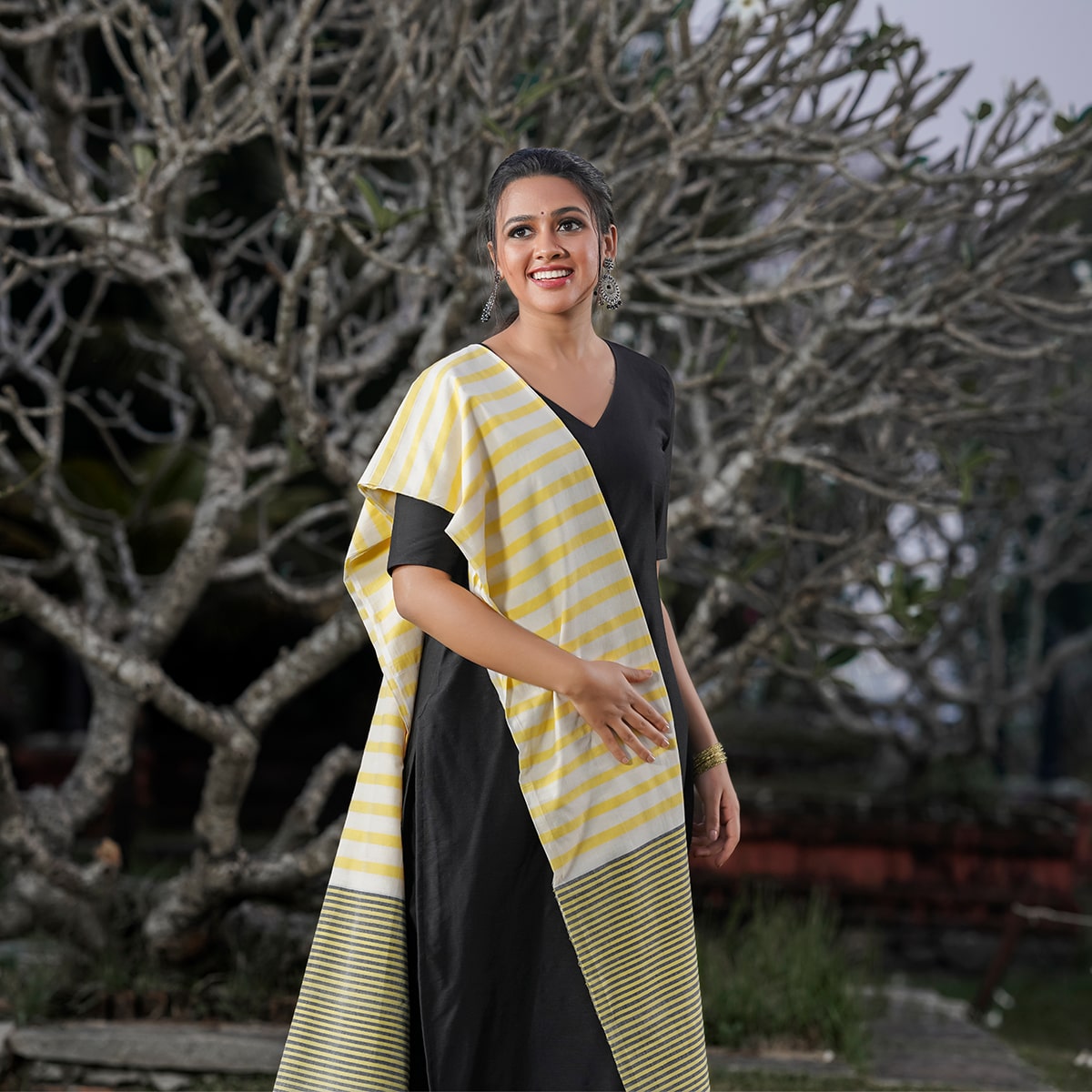
Kuruvi Dupatta
$25.00
$25.00
Story of Weaving: The handloom fabric is a type of fabric that is woven using hand operated looms. Two sets of interlacing yarns, the warp (length) and weft (width), are woven on a loom hand-operated by weavers. These looms do not use electricity. Human handling lends the fabrics a unique feel and renders the fabrics more value. The resultant fabric is softer, more durable and much more comfortable than machine-made fabrics. Handloom cotton is more breathable and thus feels lighter in summers and provides more insulation in winters. The dyeing process also becomes easier for handloom cotton as the colour penetration is substantially more. Hues are absorbed better thus look resplendent on handloom cotton. The art of hand weaving is labour intensive and takes a longer time. But, the beauty it adds to the fabric is priceless. Choosing handloom cotton supports the rich weaving heritage of India and lets the weavers carry on the precious art-form to the future generations as well.
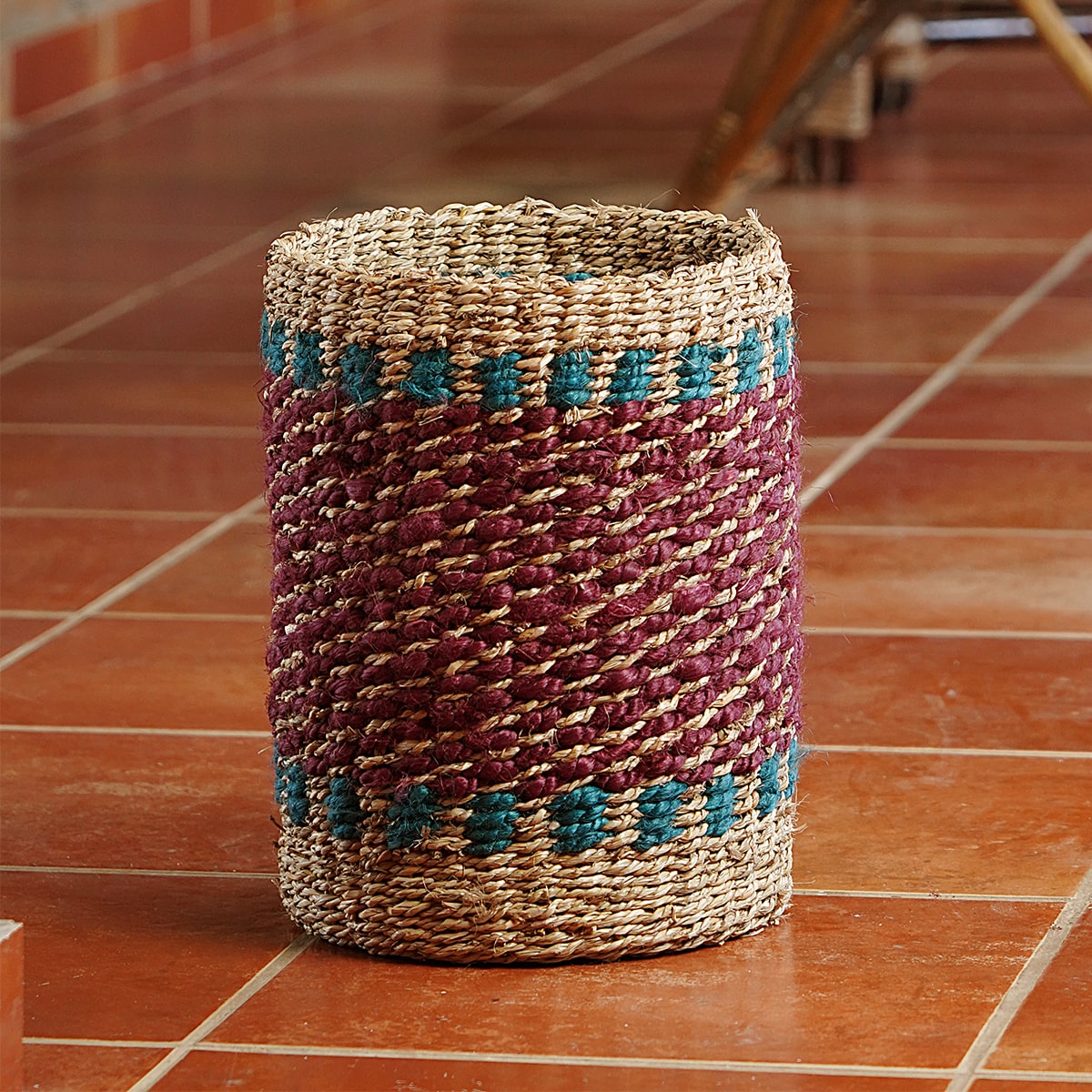
Kutta Planter/Bin Basket
$14.00
In Kerala, the land of coconut trees, we find a way to create utility from every part of that tree. For decades, making coir by processing coconut fibre has been a source of livelihood for a significant share of the population in this region. Coconut fibre is processed into strands and these strands are twisted together to form coir. Later coir is dyed with beautiful colours. Our artisans in Alleppey district of Kerala use this coir to make baskets. A basket completely made of natural materials, symbolising the spirit of Kerala.
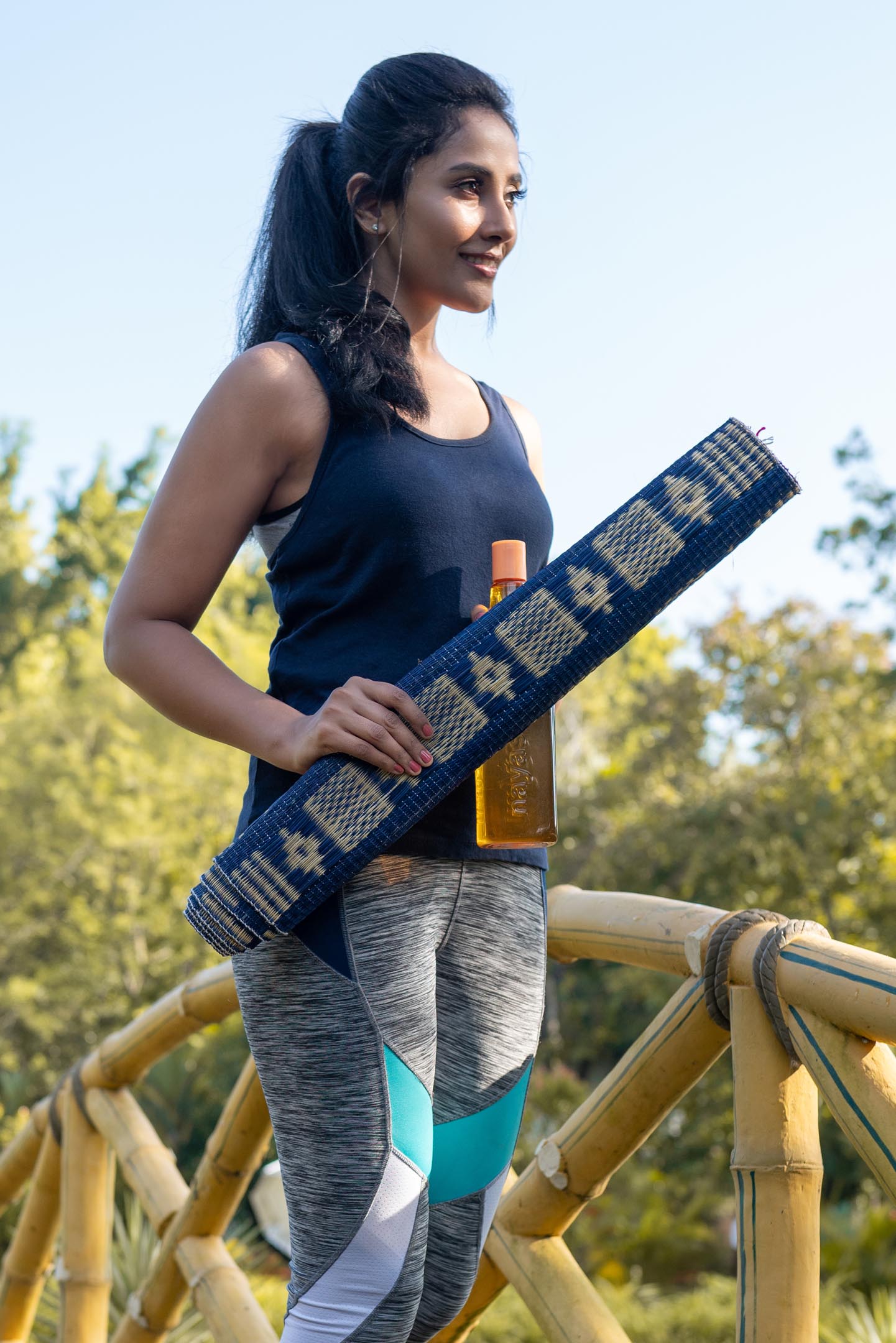
Lalitham Yoga Mat
$55.00
She goes for an early morning yoga session to a park near her home. An easy to carry mat makes her walk to the park breezy. Once she reaches the park, she spreads the mat on any flat surface. She is all ready for a relaxing yoga to energise her body and soul. The early morning sun dries up the mat. After yoga, she rolls her mat and returns home. If there is anything stuck to the mat, she just shows it under running water and put it under the sun to dry. On days when there is a slight drizzle, she blow dries the mat with a hair dryer. She keeps the dry mat in her cupboard and is ready for another busy day at work. Story of Cora Grass and Mat weaving: Cora Grass is found along river banks and in marshy lands. It can grow up to a height of two meters. Family members of mat weavers collect these cora grass and bring it for processing. They cut each grass stem into four strands and remove the soft material at the centre. Before further processing, the grass is dried under the sun, till it develops a beige colour naturally. The grass is then dyed using different colouring materials and processes to match artists imagination. Sometimes, the colouring process takes days, depending on the shade of colour desired. The handcrafted mats are woven using hand operated looms. A set of white yarns as the warp (length) and thin strands of cora grass as weft (width), are woven on a loom hand-operated by weavers. These looms do not use electricity. Human handling lends the mat a unique feel and more value. The resultant mat is softer, more durable and much more comfortable than machine-made mats. The cora grass strands are compacted by hand by the weavers, ensuring sturdiness to the mat. The art of hand weaving is labour intensive and takes a longer time. But, the beauty and quality it adds to the mat is priceless. Choosing handwoven mats supports the rich weaving heritage of Killimangalam and lets the weavers carry on the precious art-form to the future generations as well.
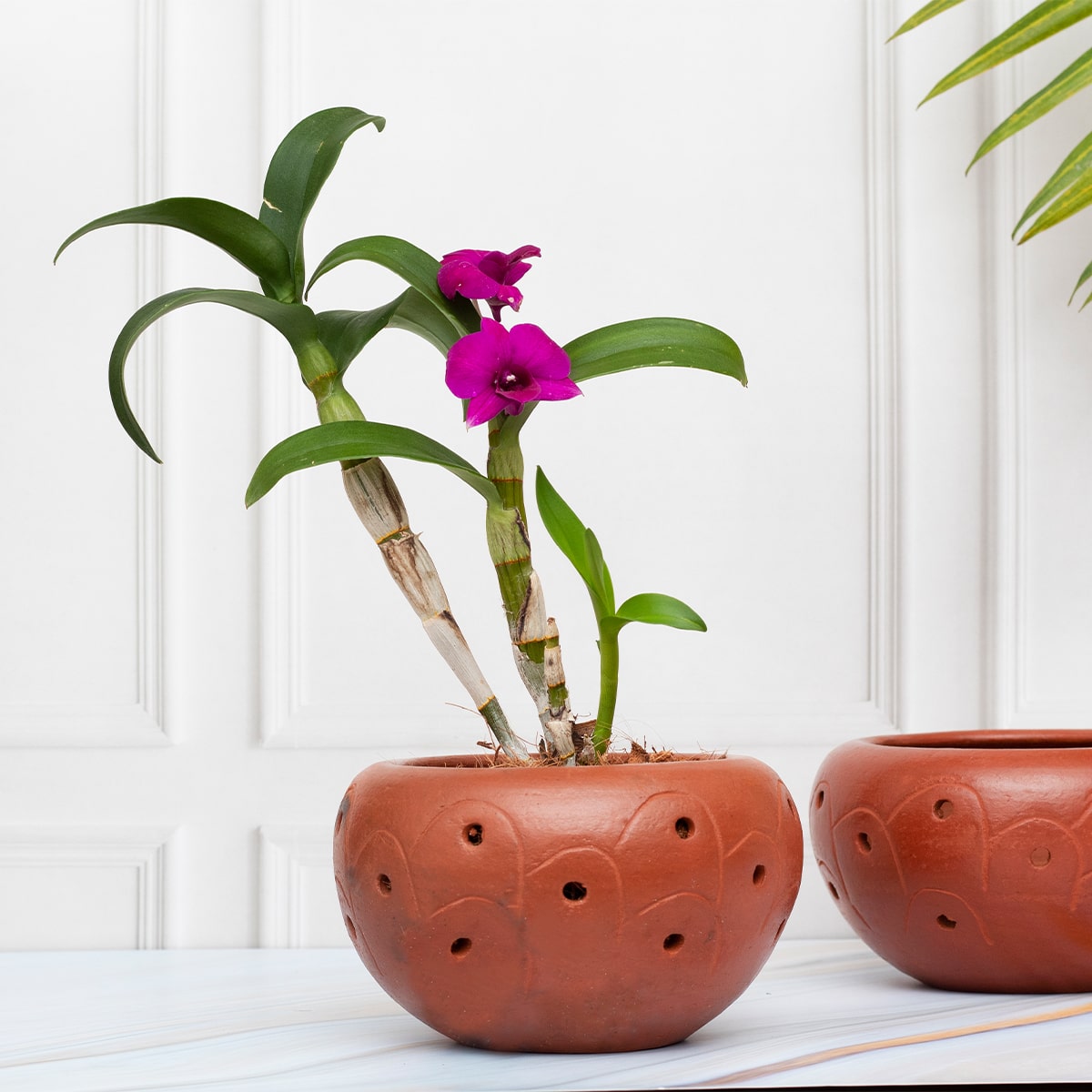
Latha Terracotta Planter
$18.00
$18.00
Decorate your interior with a fine terracotta planter, hand polished with stone to give a smooth finish.
Showing 49–60 of 124 results
Related products
View all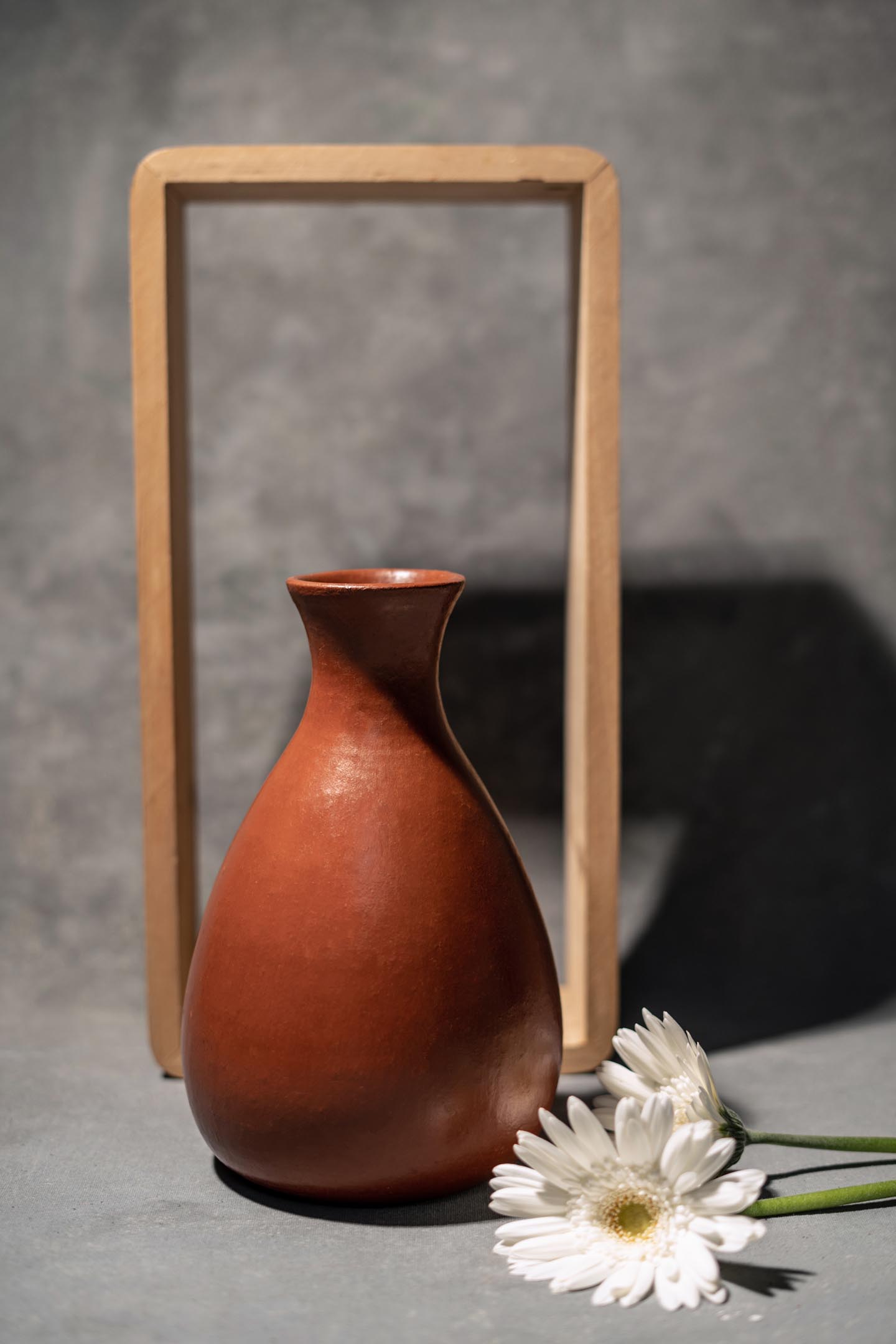
Anupamam Vase
$950
$1200
A lot of care has gone into creation of this vase. Since the neck is narrow, finishing of the inside had to be done step by step, as the the vase achieves height step by step. Someone asked Vijayakumari, our lead potter, to add a coat of glaze inside to reduce work and ensure a better finish. She refused to add any artificial materials to the crafts she make, and she prefers to finish the vase polishing by hand. The value and principles a true artisan attach to their craft is simply astounding. The vase may look simple. But, they are priceless and incomparable crafts! Anupamam!
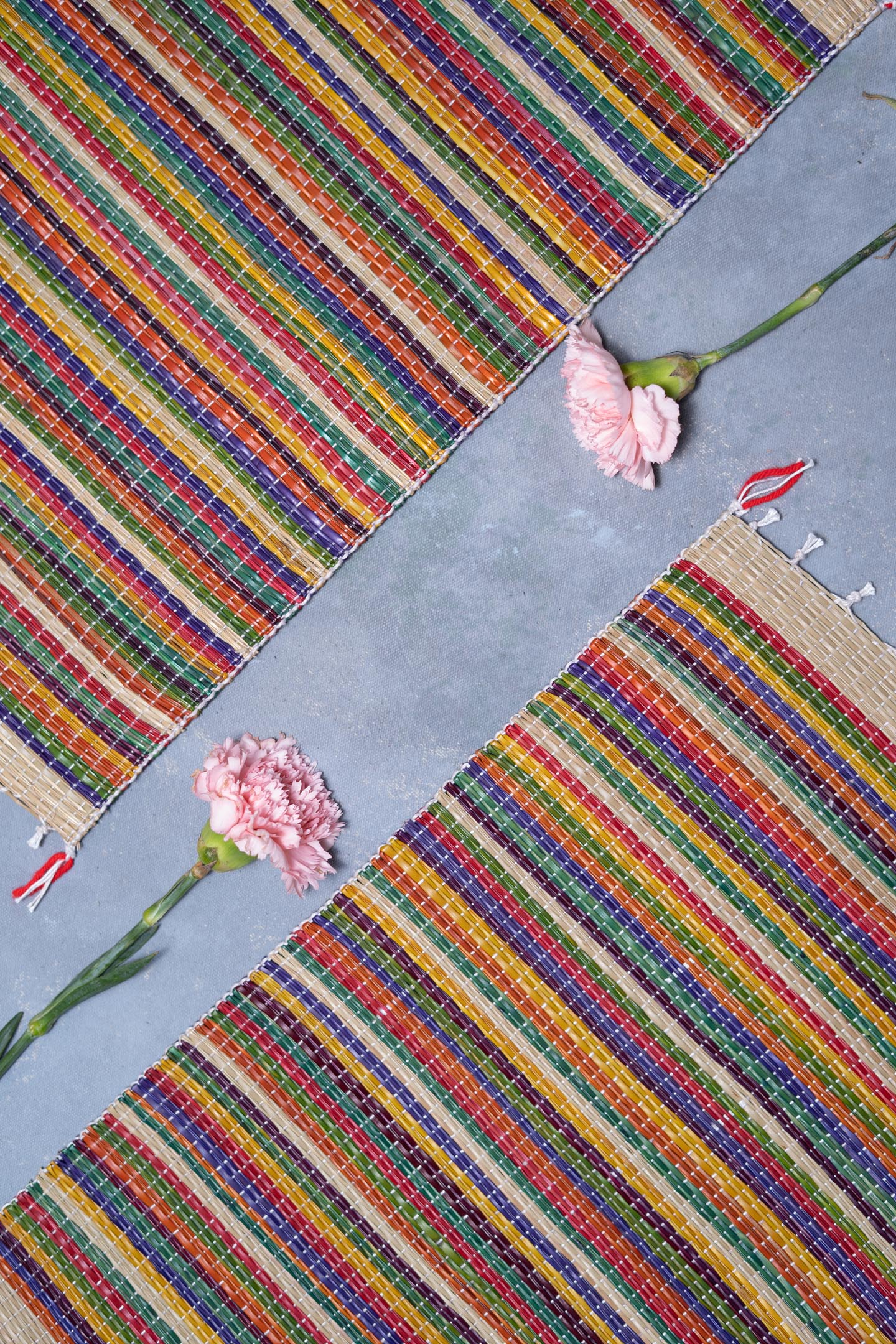
Maarivillu Place Mat
$2800
$2800
Rainbow coloured cora grass Placemat Set of six not only dress up your table in interesting patterns, but it takes away your worry of spills and smudges on the table. You may pair it with other related crafts from Graamyam to complete the look of your dinner table. Story of Cora Grass and Mat weaving: Cora Grass is found along river banks and in marshy lands. It can grow up to a height of two meters. Family members of mat weavers collect these cora grass and bring it for processing. They cut each grass stem into four strands and remove the soft material at the centre. Before further processing, the grass is dried under the sun, till it develops a beige colour naturally. The grass is then dyed using different colouring materials and processes to match artists imagination. Sometimes, the colouring process takes days, depending on the shade of colour desired. The handcrafted mats are woven using hand operated looms. A set of white yarns as the warp (length) and thin strands of cora grass as weft (width), are woven on a loom hand-operated by weavers. These looms do not use electricity. Human handling lends the mat a unique feel and more value. The resultant mat is softer, more durable and much more comfortable than machine-made mats. The cora grass strands are compacted by hand by the weavers, ensuring sturdiness to the mat. The art of hand weaving is labour intensive and takes a longer time. But, the beauty and quality it adds to the mat is priceless. Choosing handwoven mats supports the rich weaving heritage of Killimangalam and lets the weavers carry on the precious art-form to the future generations as well.
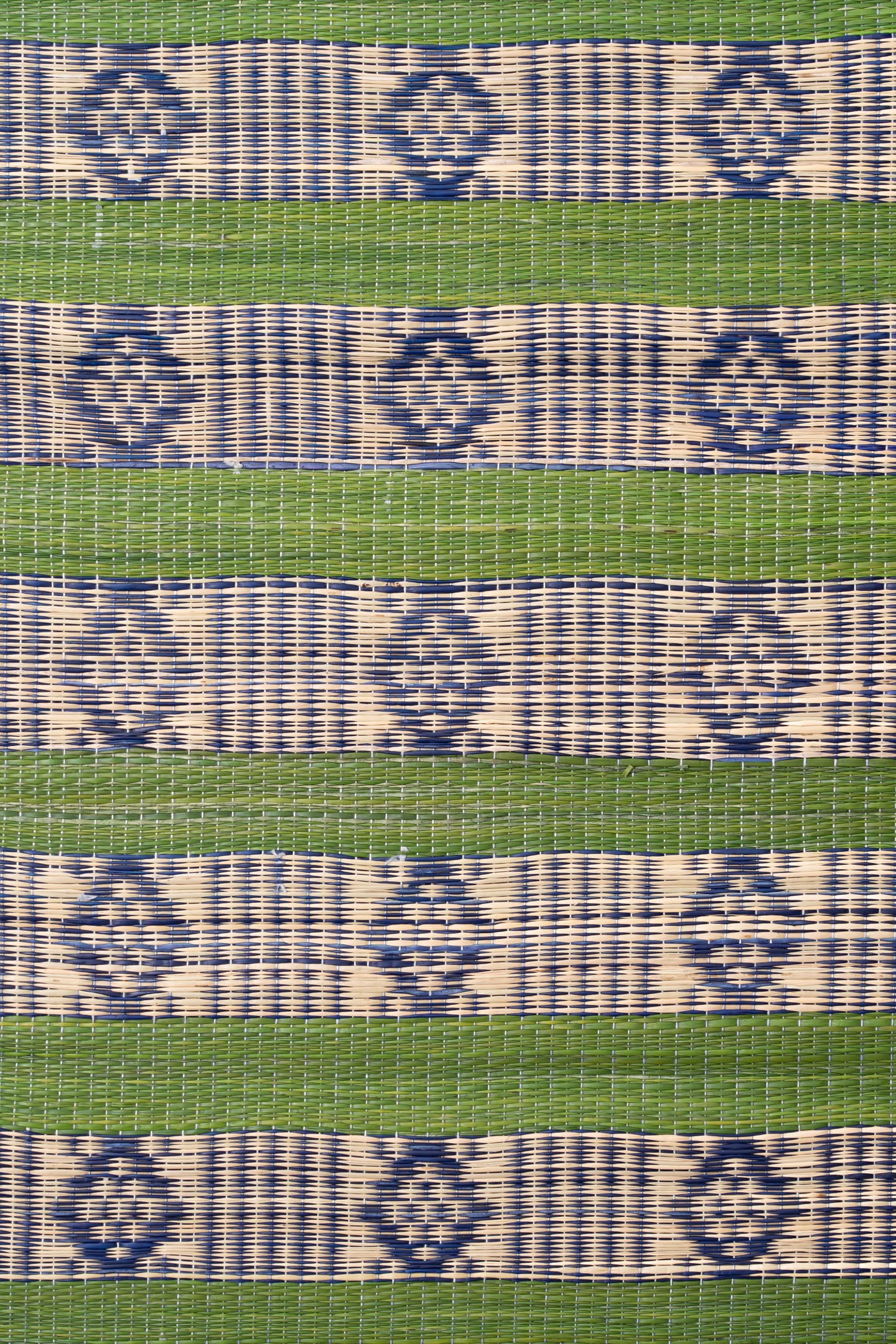
Marathakam Picnic Mat
$3800
$3800
Oh! the bright green emerald (Marathakam) look has such a cooling effect with the green tone on the mat. That soft feeling of a well treated cora grass. Made of all natural materials, you can leave all your worries while you spend time relaxing on it. Have a relaxing outing in the park! Story of Cora Grass and Mat weaving: Cora Grass is found along river banks and in marshy lands. It can grow up to a height of two meters. Family members of mat weavers collect these cora grass and bring it for processing. They cut each grass stem into four strands and remove the soft material at the centre. Before further processing, the grass is dried under the sun, till it develops a beige colour naturally. The grass is then dyed using different colouring materials and processes to match artists imagination. Sometimes, the colouring process takes days, depending on the shade of colour desired. The handcrafted mats are woven using hand operated looms. A set of white yarns as the warp (length) and thin strands of cora grass as weft (width), are woven on a loom hand-operated by weavers. These looms do not use electricity. Human handling lends the mat a unique feel and more value. The resultant mat is softer, more durable and much more comfortable than machine-made mats. The cora grass strands are compacted by hand by the weavers, ensuring sturdiness to the mat. The art of hand weaving is labour intensive and takes a longer time. But, the beauty and quality it adds to the mat is priceless. Choosing handwoven mats supports the rich weaving heritage of Killimangalam and lets the weavers carry on the precious art-form to the future generations as well.
